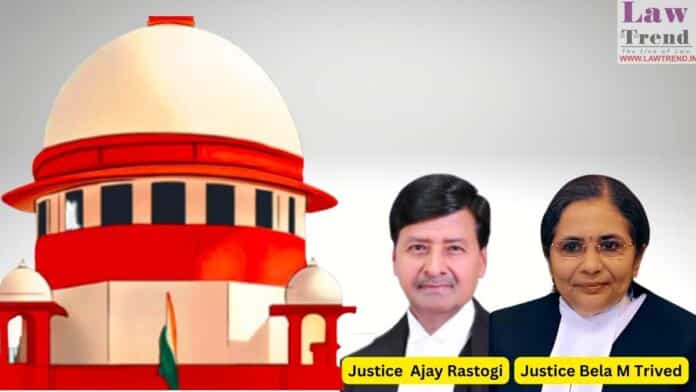The Supreme Court Tuesday said its power under Article 136 of the Constitution of India is very wide and extraordinary and should be exercised in rare and exceptional cases. The article grants discretionary powers to the apex court to allow special leave petitions.
A bench comprising Justice Ajay Rastogi and Justice Bela M Trivedi made the observation while dismissing an appeal of a Jammu and Kashmir native Imtiyaz Ahmad Malla, who had challenged an order of the Jammu and Kashmir High Court.
The high court had dismissed his appeal against an order of cancellation of his appointment as a constable in the state police on the ground that there was a criminal complaint lodged against him.
The bench noted that the high court’s observation that the director general being the highest functionary in the police hierarchy, was the best judge to consider the suitability of the petitioner for induction into the police force, was “just”.
It said the high court’s order was “just and proper”, and declined to interfere with it in the exercise of the SC’s jurisdiction under Article 136 of the Constitution of India.
“It is a well-settled position of law that though the scope of Article 136 of the Constitution of India is very wide, the power conferred thereunder being a very special and extraordinary power, it has to be exercised in rare and exceptional cases.
“Since we do not find any infirmity or illegality in the impugned order passed by the High Court, the present petition deserves to be dismissed and is accordingly dismissed,” the apex court said.
According to the petition, Malla was selected in 2008-2009 for the post of constable in the Jammu and Kashmir Executive Police, but later it was found that there was a criminal case lodged against him in 2007.
It was claimed in the charge sheet filed against Malla on the issue that in the criminal case, he was released on bail after four days of his arrest, and therefore “he had good knowledge of his involvement in the criminal case and that he had consciously concealed the said information”.
It was also found during the course of inquiry that the petitioner had shown his residence at village Gundchobotra instead of Pakhribal to get a clean chit at the time of police verification. Following that his appointment was cancelled by an order dated March 1, 2010.
The applicant was, however, later acquitted in the criminal case in April 2011.




